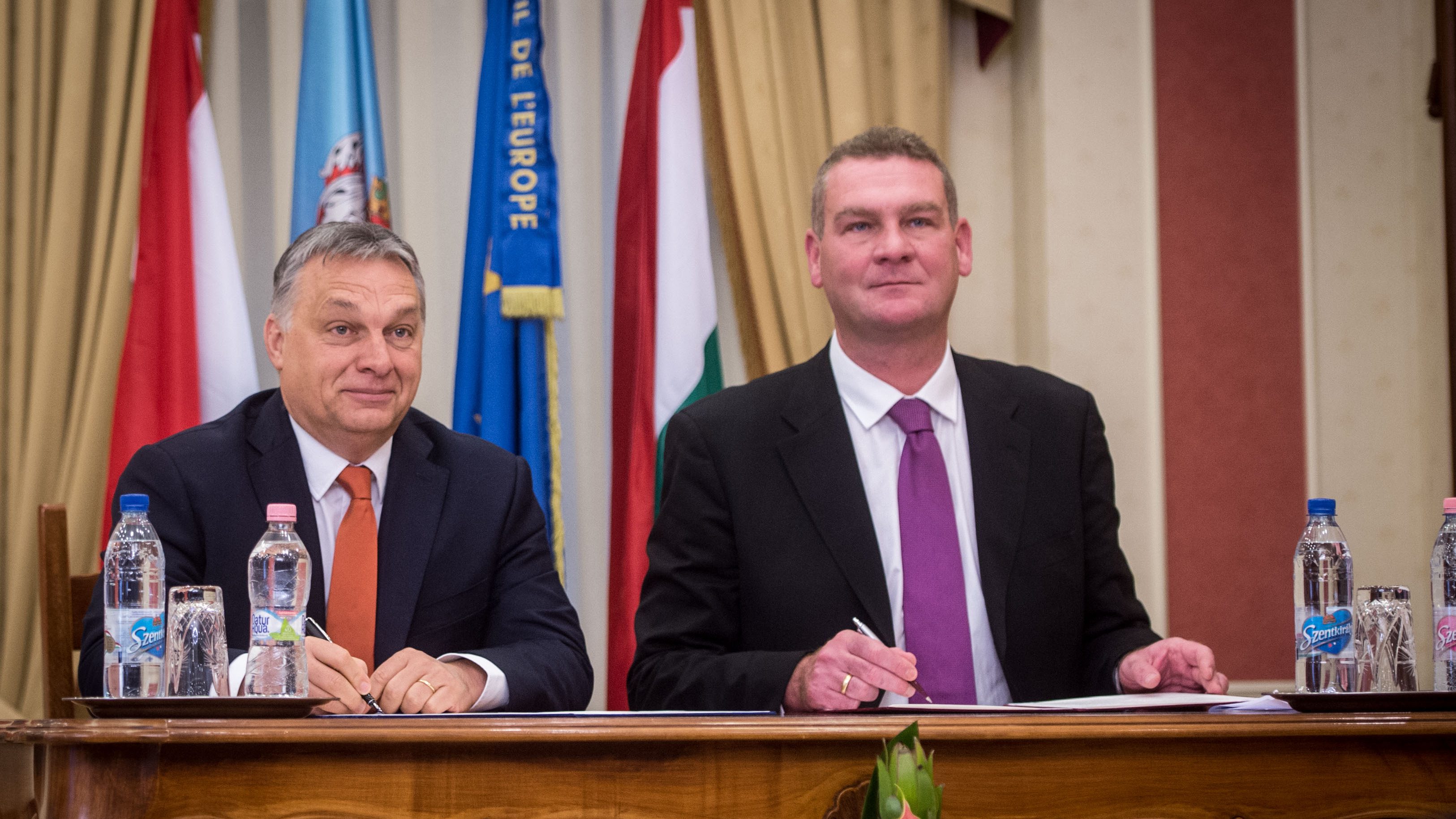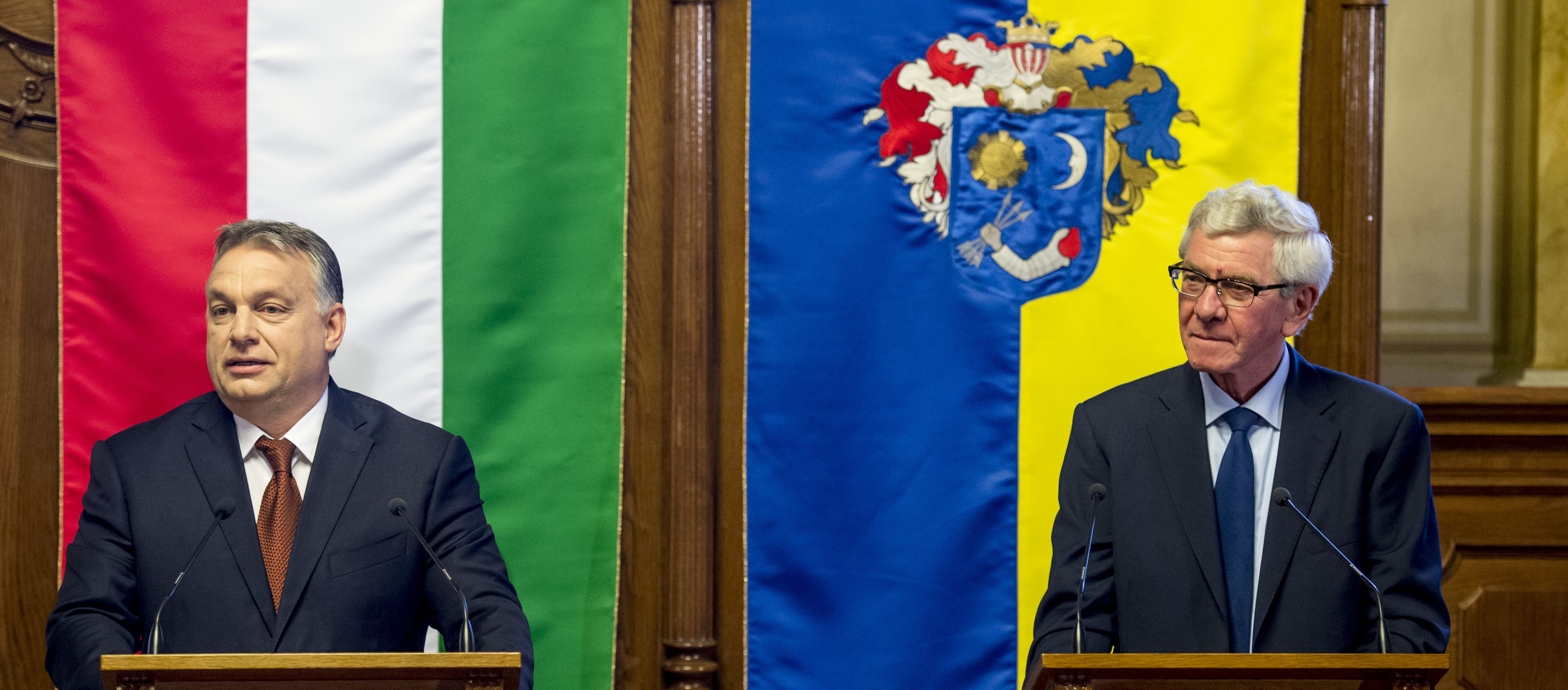
With regard to the details of the cooperation agreement concluded between Szeged and the Government, the Prime Minister explained that they had decided on development projects that would stand the test of time. The realisation of these is irrespective of “how political winds develop in Hungary”, he said.
At the press conference the Prime Minister noted that negotiations between the Cabinet and an opposition-governed municipality are rare.
Mr. Orbán said that his wish for Szeged is for it become a city that is as successful as its history deserves it to be. “Szeged may not be the largest city in the region, which includes part of three countries, but it has the best and most beautiful university; and although it may not have the strongest economy, it has at least succeeded in preserving its highest quality industries”, he explained.

The Prime Minister estimated the total cost of the development projects announced at 50 billion forints (EUR 160.5M). However, he added, if the growth of the Hungarian economy – which could exceed 4 per cent this year – so permits, several projects that have so far only been discussed hypothetically could also be successfully realised. This would mean that the total value could reach 70 billion forints.
Of the points agreed upon in the new agreement, the Prime Minister first mentioned the construction of the M47 dual carriageway, which would lead to the realisation of a North-South transport corridor connecting Szeged and Debrecen, via Miskolc.
The Prime Minister told reporters that “The 15 billion-forint construction of a rail and road bridge across the River Tisza and the related development of the suburban railway line in the direction of Makó will improve the city’s regional transport position”.

“The Government is undertaking the financing of technical developments at Szeged Airport required as a result of changes in international certification regulations, as well as the construction of a new passenger terminal building”, Mr. Orbán announced.
“According to the agreement” he stated, “we will also be developing a 200-hectare industrial park, including the realisation of a major project that is important to the Hungarian food production sector. On the other half of the site a technology park will be established, linked to the Laser Research Centre”.
Another project forming part of the Modern Cities Programme is the reconstruction of the city-centre bridge, the “Tisza Szeged Main Street” project and the renovation of city-centre quays. Long-term projects include the construction of a bridge for cyclists and pedestrians. The Government is supporting the relocation of the Mars Square bus station, to enable the development of a community space on the site. Furthermore, Széchenyi Square will also regain its pre-war appearance, the Prime Minister told reporters.

A working group will be established to investigate what development projects are required to enable Szeged to be the first city in the country with an exclusively electric-powered public transport system.
Among sports-related projects, the Prime Minister highlighted the 7 billion-forint (EUR 22.5M) construction of a new indoor swimming pool, and the establishment of a sports hall suitable for indoor sports and an athletics centre. He added that the construction of an indoor athletics centre requires further negotiation.
In reply to a question from the press on illegal immigration, Mr. Orbán stressed that the reinforcement of the southern border is vital. “Border protection must be modern and effective”, the Prime Minister said, pointing out that we must do everything possible “to ensure the stability of the countries to our south, but we must also be capable of protecting ourselves regardless of their situation”.
Asked about Hungary’s bid to host the Olympics, the Prime Minister said that the Government accepts that the decision on the event should be in a form desired by the people, adding that he will only be able to comment on a possible referendum once the ongoing collection of signatures is complete.

Mayor of Szeged László Botka stressed that it is in the fundamental interests of the nation that in the coming period Hungary is able to utilise available European Union funding, and that cooperation between the City of Szeged and the Government also aims at achieving this goal.
“There are currently 104 development projects in progress in the city, and we have discussed a further 19 with the Prime Minister”, he said, stressing that these development projects will not only serve Szeged, but will also improve the competitiveness of the whole country. Mr. Botka also noted that Szeged not only sees funding as important, but also EU values. In relation to the southern Tisza bridge, the Mayor said that, in addition to improving suburban transport, the project would also re-establish the rail link between Szeged and Temesvár (Timișoara).

